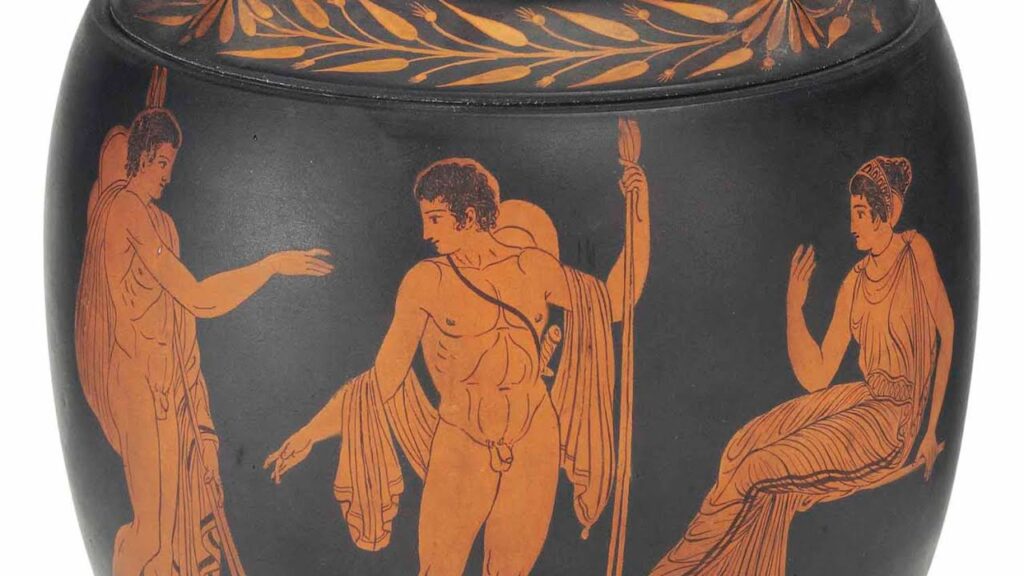‘This vase is a really important piece of British ceramic history,’ says Matilda Burn, a Christie’s specialist in Decorative Arts, of this black ‘basaltes’ encaustic-decorated ‘First Day’s Vase’, potted by Josiah Wedgwood in 1769. ‘It’s the start of a legacy that has continued through the centuries. He really dedicated his life to the perfection of his art.’
Josiah Wedgwood (1730-95) is arguably the most revered of British potters. Coming from a large family of well-established potters in Staffordshire, his upbringing was modest, although he was well connected to important figures in the pottery industry. These included his cousins Thomas and John Wedgwood of the Big House, who were successful manufacturers of salt-glazed stoneware.
Following the death of his father, Josiah Wedgwood was apprenticed to his older brother, Thomas. ‘He went on to develop the skills of a master potter,’ explains Burn, ‘which was really the most coveted position and which took years to work his way up to.’
Wedgwood established his own manufactory, the Ivy House Works, with his cousin Thomas in around 1759. Building on early successes, he moved shortly after this to the Brick House Works. During this time he continually carried out experiments to finesse his creamware body and lead glaze. It was with his creamware body that Wedgwood achieved wide acclaim and commercial success.
Josiah was a great publicist of his own wares and during the 1760s he had a growing list of aristocratic patrons, all of whom sought his fashionable creamware. Wedgwood also keenly courted the patronage of Queen Charlotte, who commissioned a service from the Chelsea factory in 1762.
It was on a visit to Liverpool in 1762 that Wedgwood had a chance meeting with Thomas Bentley, a well-travelled and cultivated man who had taken the Grand Tour in 1753. As a business partner Bentley offered Wedgwood not only essential commercial experience but also a deep understanding of changing tastes and market trends. In combination with Wedgwood’s inventiveness and deep technical understanding of the art of pottery, Bentley was able to help shape and guide the direction of production.
Together, Wedgwood and Bentley played an important part in the development and expansion of the Trent and Mersey Canal. The success of the canal scheme allowed Wedgwood to expand his manufactory, and he purchased a 350-acre estate through which the canal would pass. The new purpose-built factory and the surrounding estate became known as Etruria, named after the ancient central state in Italy whose arts, most notably pottery, were being rediscovered in archaeological digs at the time.
This ‘First Day’s Vase’ was potted on the opening day of the Etruria Factory in Staffordshire on 13 June 1769. Wedgwood potted it himself, with his partner Bentley turning the wheel. ‘It is one of six that were fired,’ explains Burn, ‘but only four survived the firing process, which it makes it all the more exciting.’
Read more at

